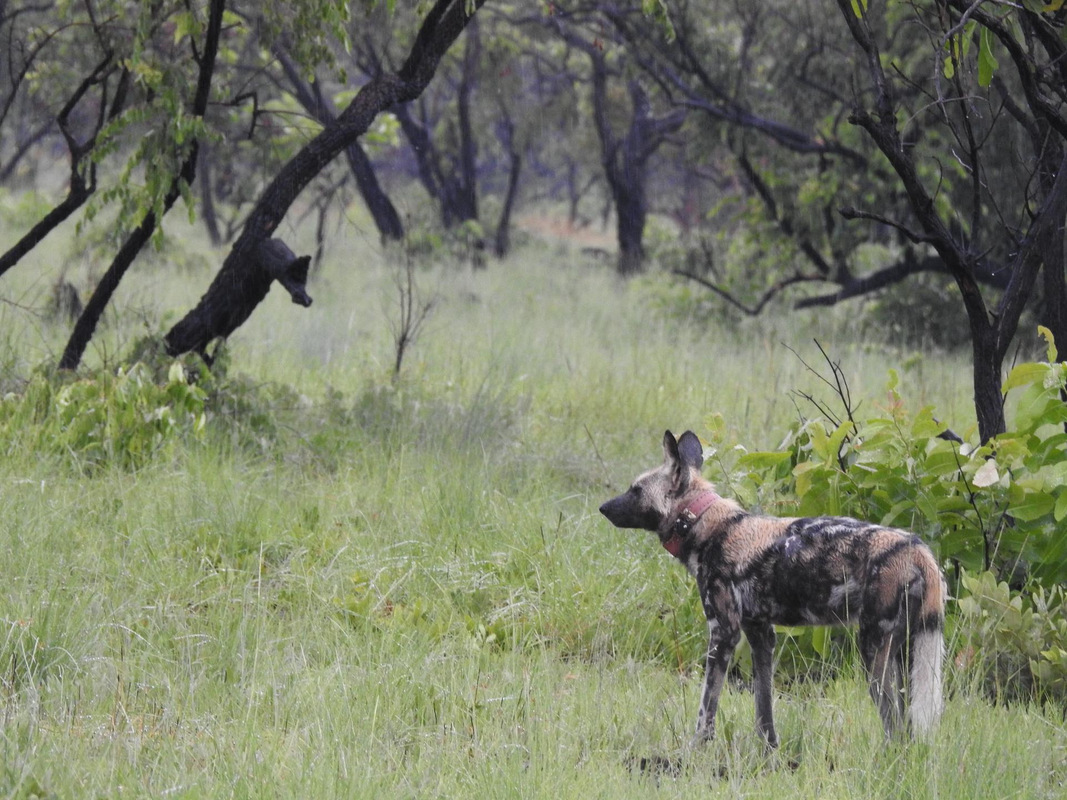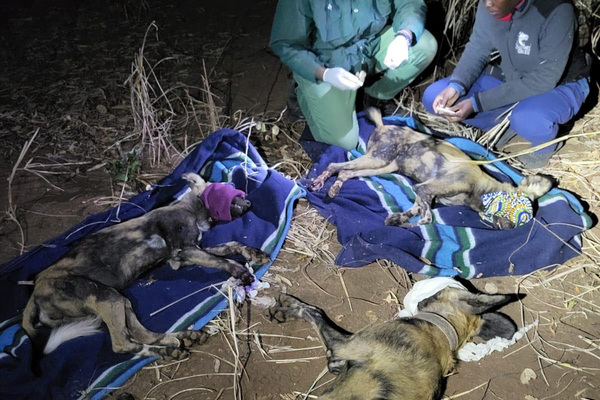
Liuwa Plain National Park in Zambia’s Western Province is a beacon of hope for wildlife conservation. Known for its breathtaking landscapes and rich biodiversity, it has become a stronghold for African wild dogs (Lycaon pictus), thanks to ongoing conservation efforts.
The reintroduction of wild dogs to Liuwa and the protection of existing packs underscore the critical role that collaborative conservation plays in preserving this endangered species.
The Return of Wild Dogs to Liuwa Plain
The reintroduction of African wild dogs to Liuwa Plain is a story of triumph amidst adversity. Historically native to the area, wild dogs went locally extinct in 2014, coinciding with a rabies outbreak in the domestic dog population.
In early 2022, eleven wild dogs—males from South Africa and females from Zambia’s Kafue National Park—were successfully translocated and released after a bonding period in a boma. By 2023, the pack had adapted well, with successful breeding bolstering their numbers and some members of the pack dispersing.
As of 2023, monitoring recorded three distinct wild dog packs in Liuwa, signaling the success of these efforts.
Conservation, Community, and Collaboration
Liuwa’s success is a testament to the power of collaboration. The Zambian Carnivore Programme (ZCP) works closely with local communities, the Department of National Parks and Wildlife (DNPW), and conservation organizations like African Parks to combat threats such as snaring. Education and community engagement have been pivotal in fostering coexistence and building a shared commitment to conservation.
The Mayukuyuku Wild Dog Pack: A Critical Rescue Effort
In late 2024, ZCP launched an urgent 36-hour mission to save members of the Mayukuyuku pack after satellite collars revealed abnormal movements. The team discovered several dogs trapped in illegal snares, a devastating but all-too-common threat to wildlife.
Over the course of the rescue:
5 dogs were successfully de-snared.
Aerial support ensured the rescued dogs rejoined their pack.
Tragically, 2 dogs, including a pregnant female, were lost.
This mission highlights the dangers posed by snares, which, while typically set for herbivores, frequently ensnare carnivores, causing injuries, deaths, and disruptions to ecosystems.
In 2024 alone, ZCP, in collaboration with DNPW, GKLL, African Parks, and other partners, de-snared 15 large carnivores across three ecosystems. These efforts not only save individual animals but also protect the delicate balance of their habitats.
Liuwa Plain: A Unique Safari Destination
This vast, open grassland spans over 3,600 square kilometers and is part of the Barotse Floodplain, one of Africa’s most significant wetland ecosystems.
Liuwa is famed for hosting Africa’s second-largest wildebeest migration, with tens of thousands of wildebeest crossing the plains annually, often accompanied by zebra and other herbivores. Guests can also spot cheetahs, hyenas, and a recovering lion population, including the descendants of the famous lioness, Lady Liuwa.
For bird enthusiasts, the park is home to over 300 bird species, including wattled cranes, pink-backed pelicans, and endangered grey crowned cranes. The seasonal flooding transforms the landscape, creating a dynamic and picturesque ecosystem that shifts with the rains.
King Lewanika: A New Chapter with Ker & Downey
Adding to Liuwa’s allure is the announcement that Ker & Downey will take over the management of King Lewanika Lodge. This is the only permanent lodge in Liuwa Plain, offering six open-front luxury tents with panoramic views of the plains.
The lodge combines eco-conscious design with luxurious amenities, including private decks, indoor and outdoor showers, and exceptional service. Guests can enjoy a range of activities, including game drives, walking safaris, and cultural visits to local communities.
Ker & Downey’s renowned commitment to conservation and hospitality ensures that King Lewanika will continue to support Liuwa’s wildlife while providing a world-class experience for its guests.
Images: ZCP Florian Weise & Stephi Matsushima




